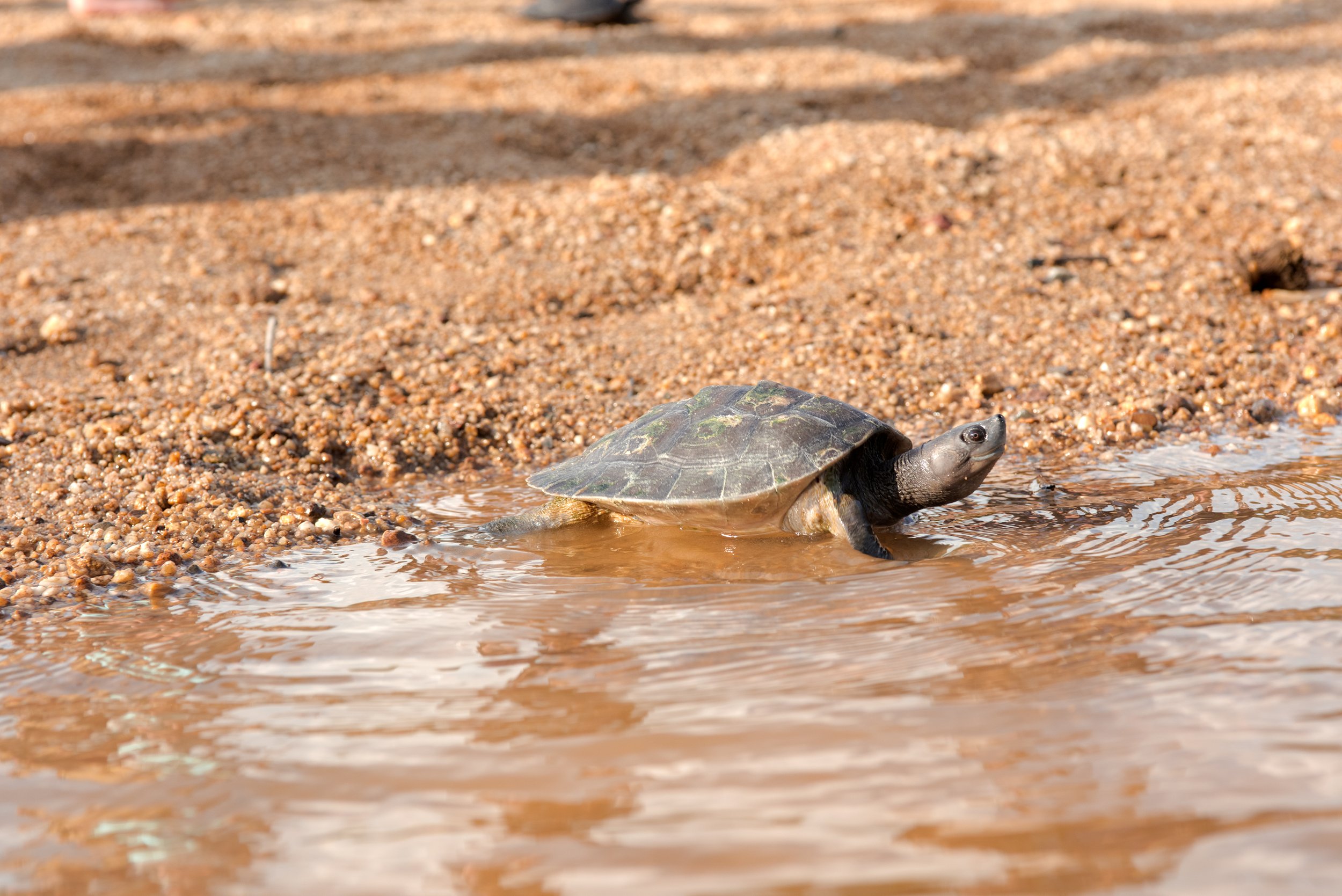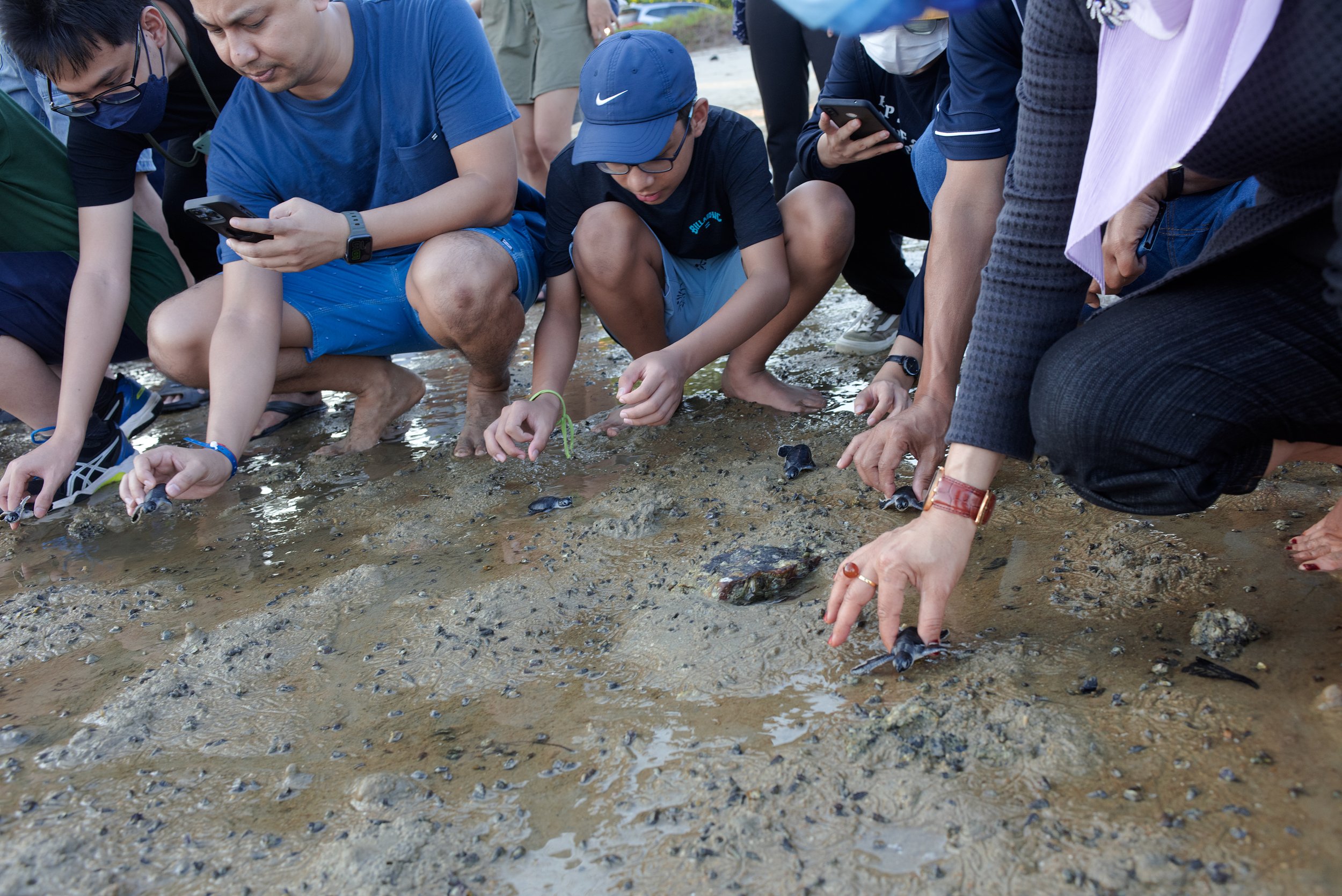
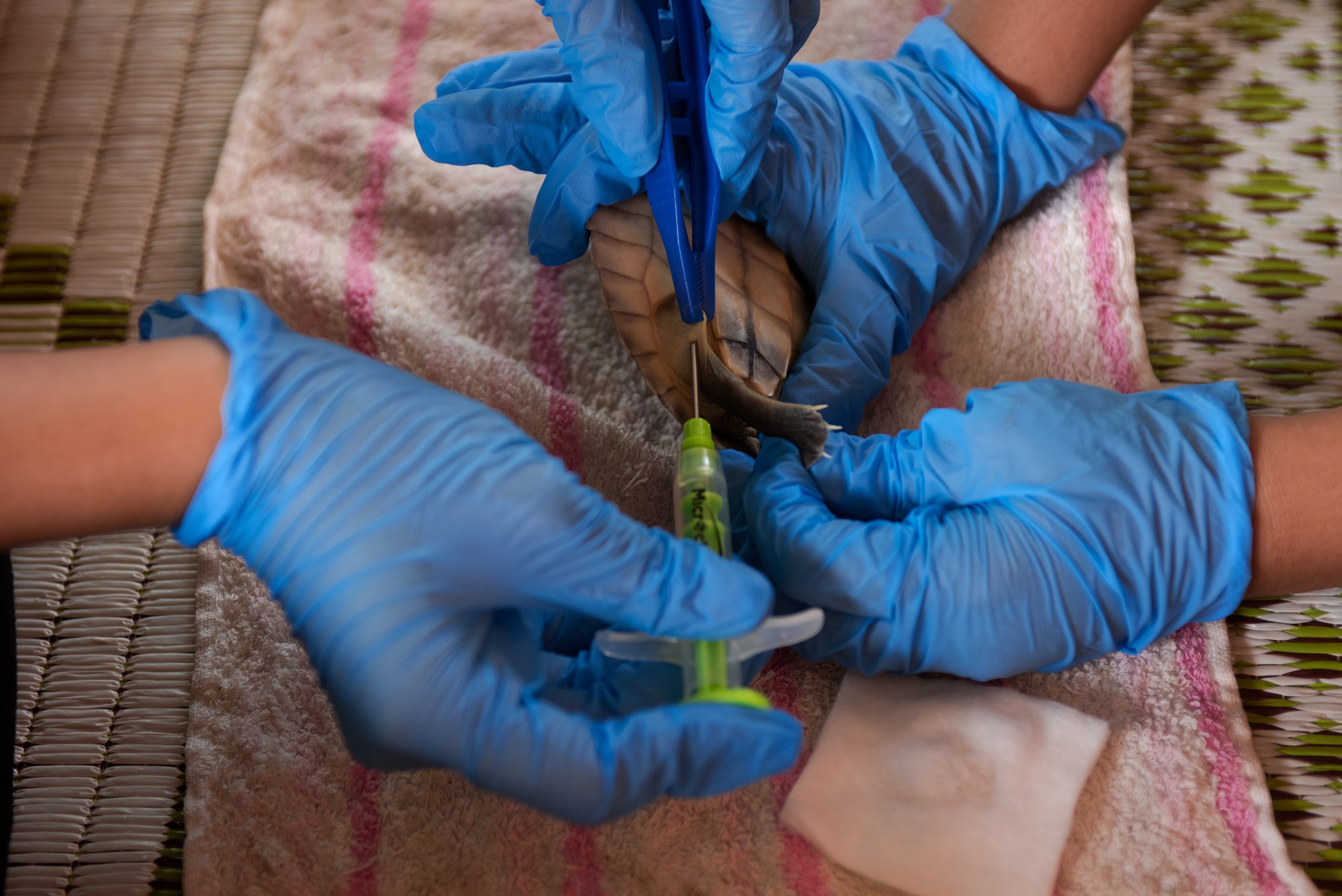
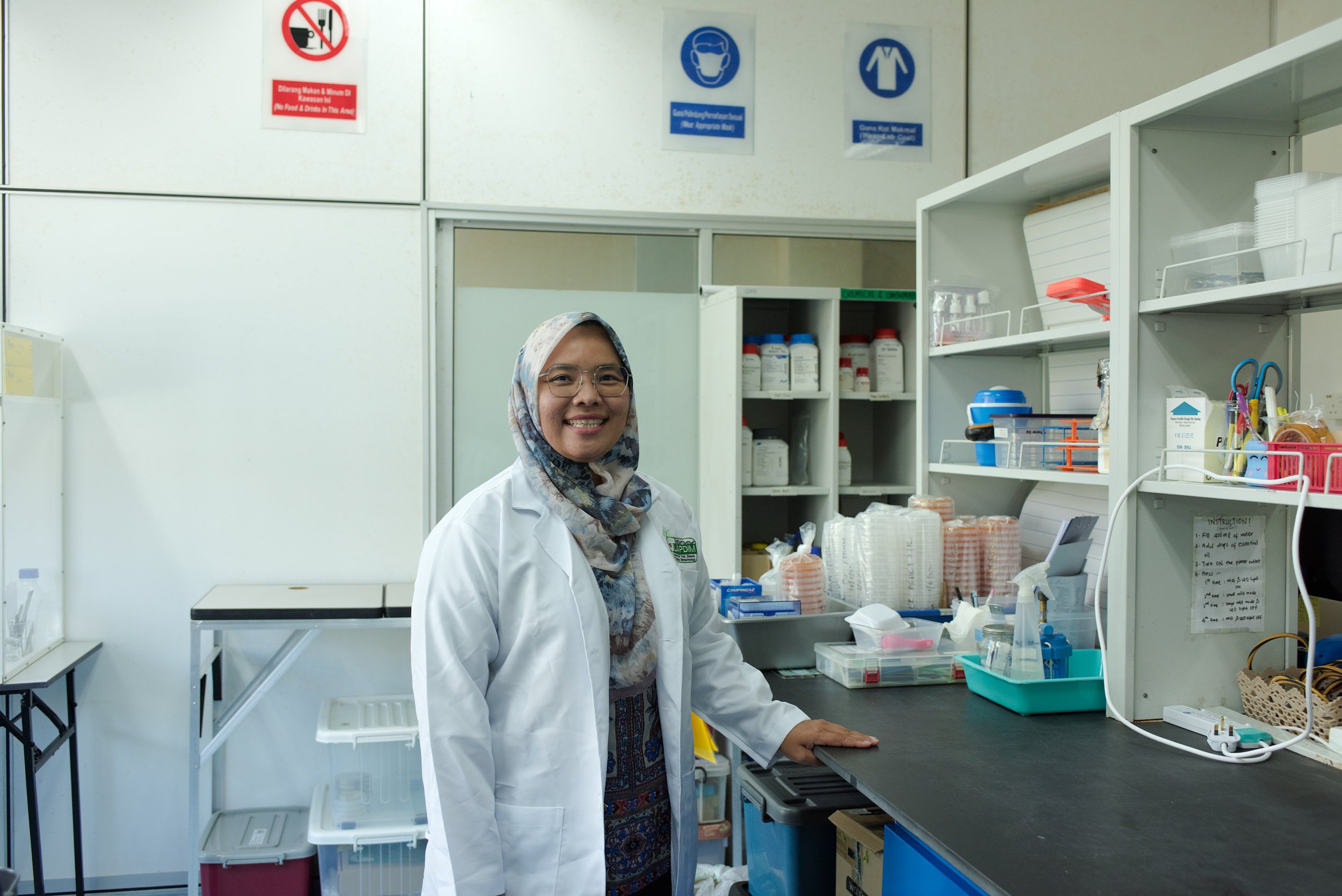

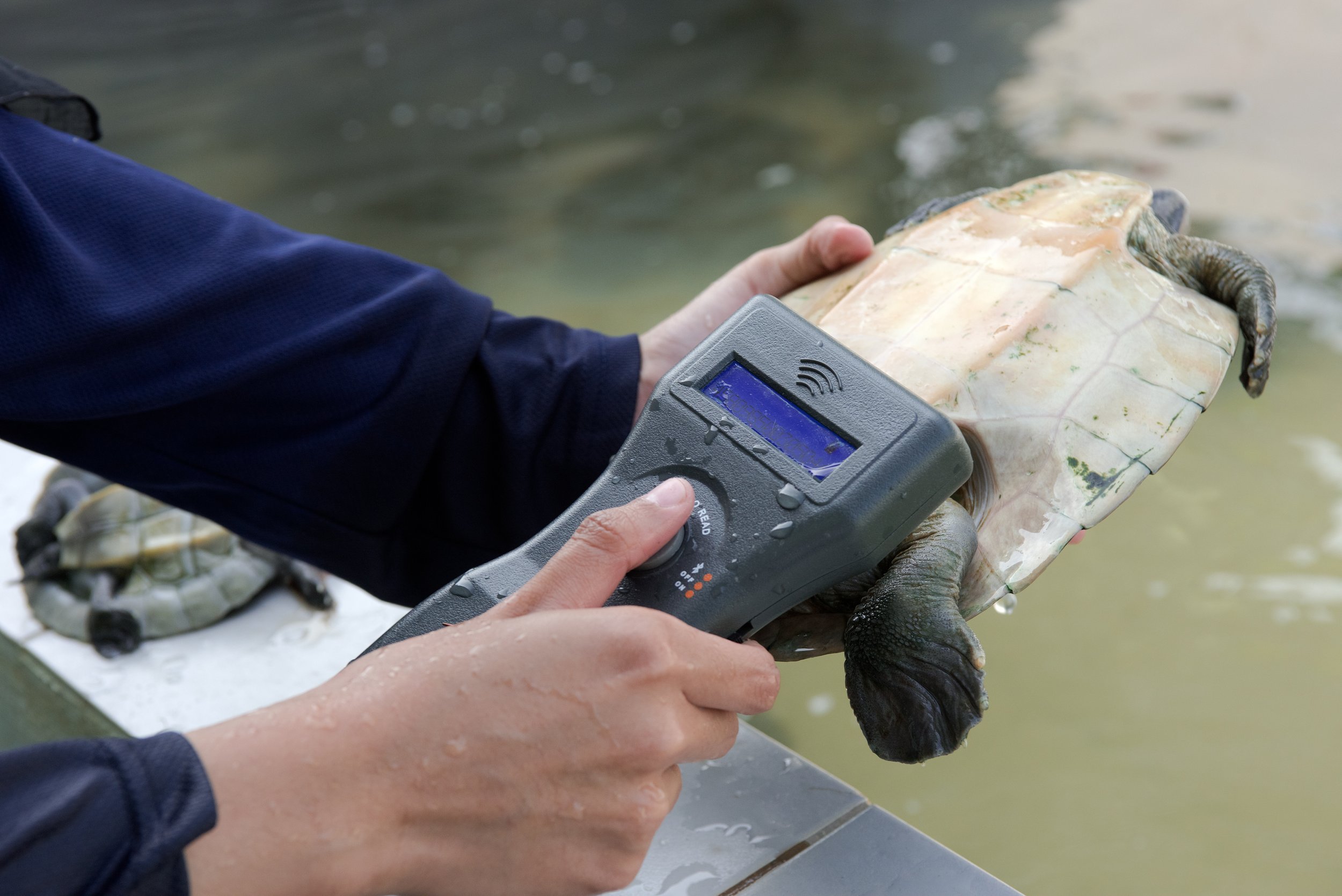
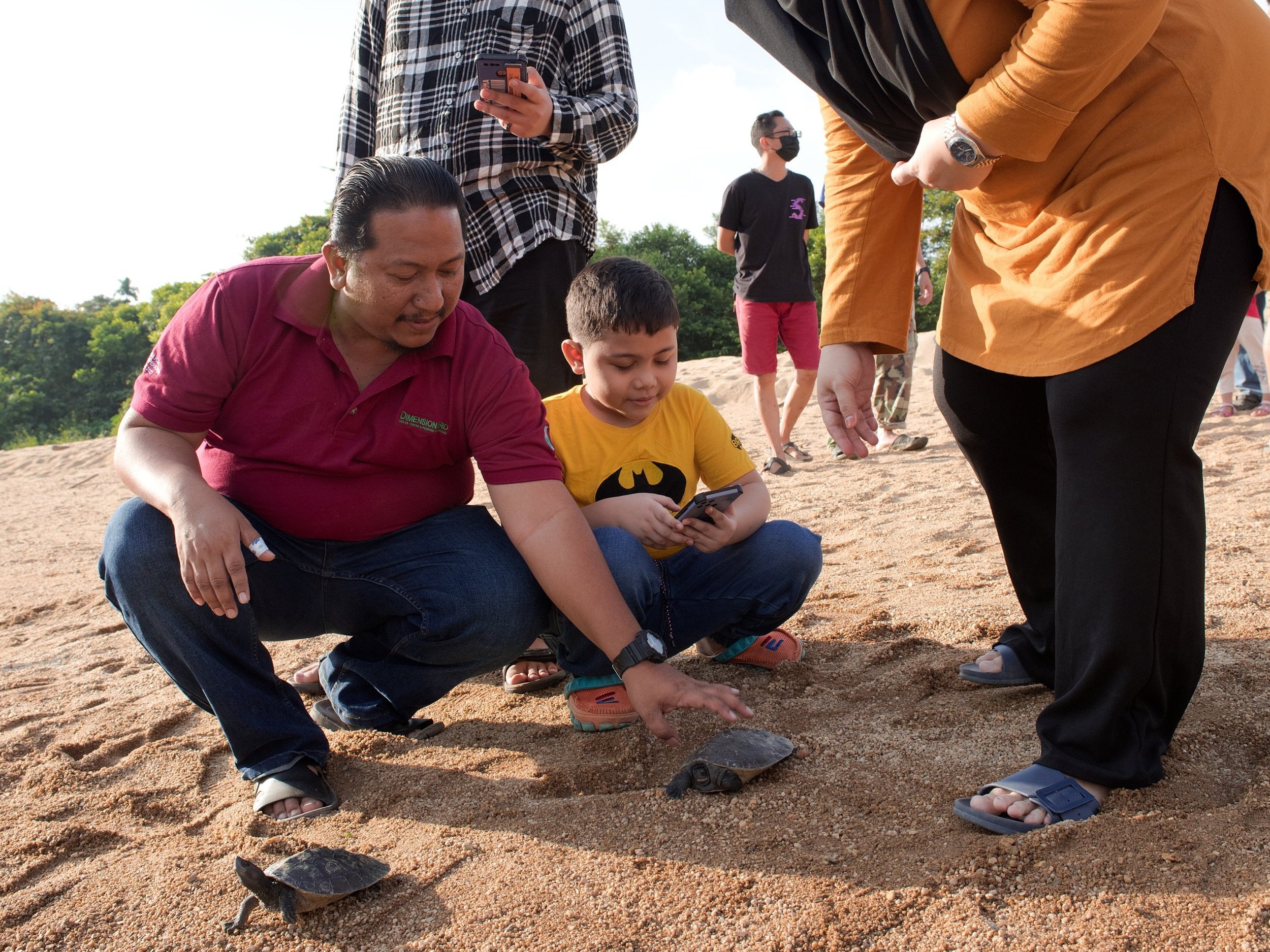
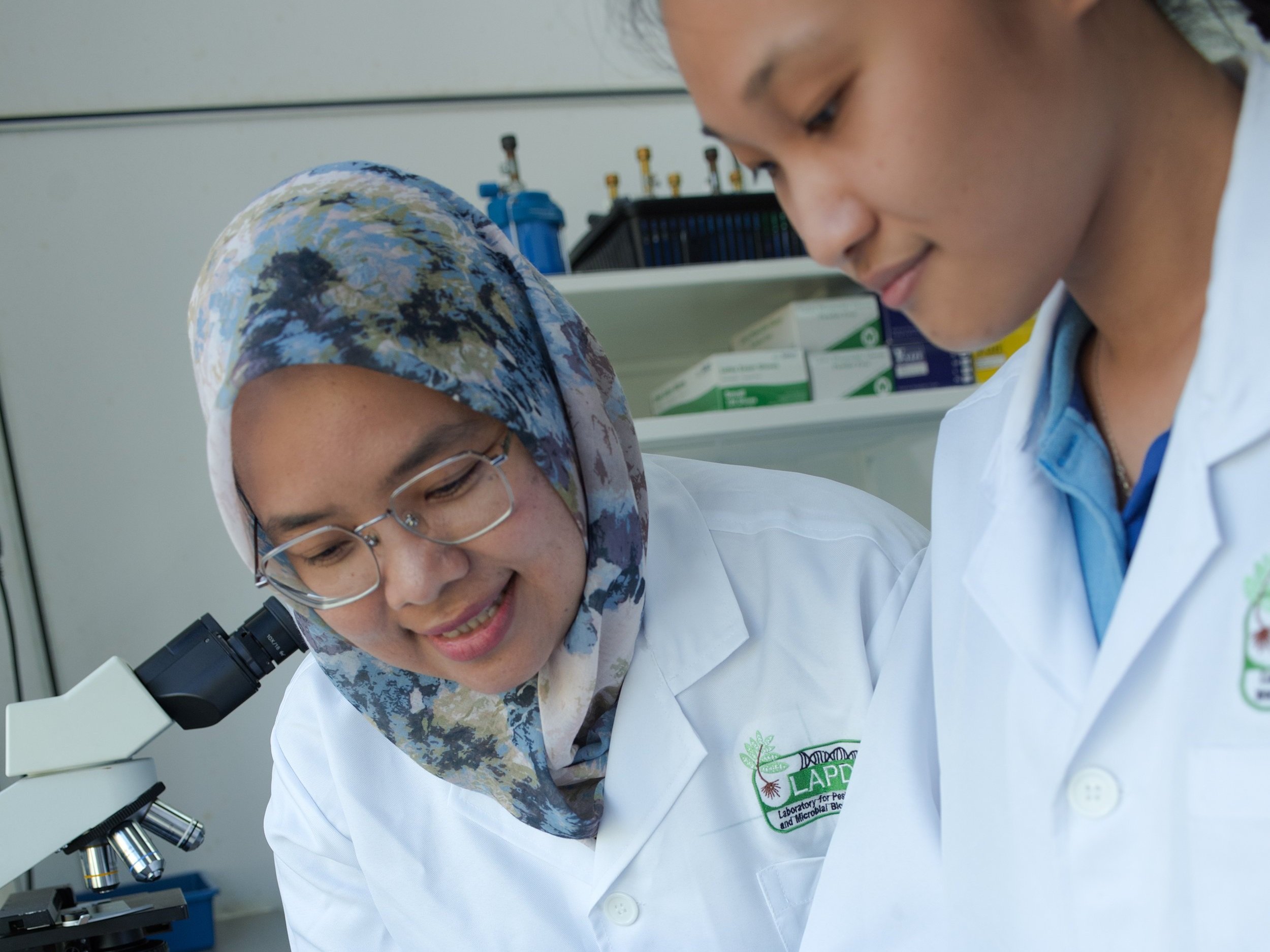

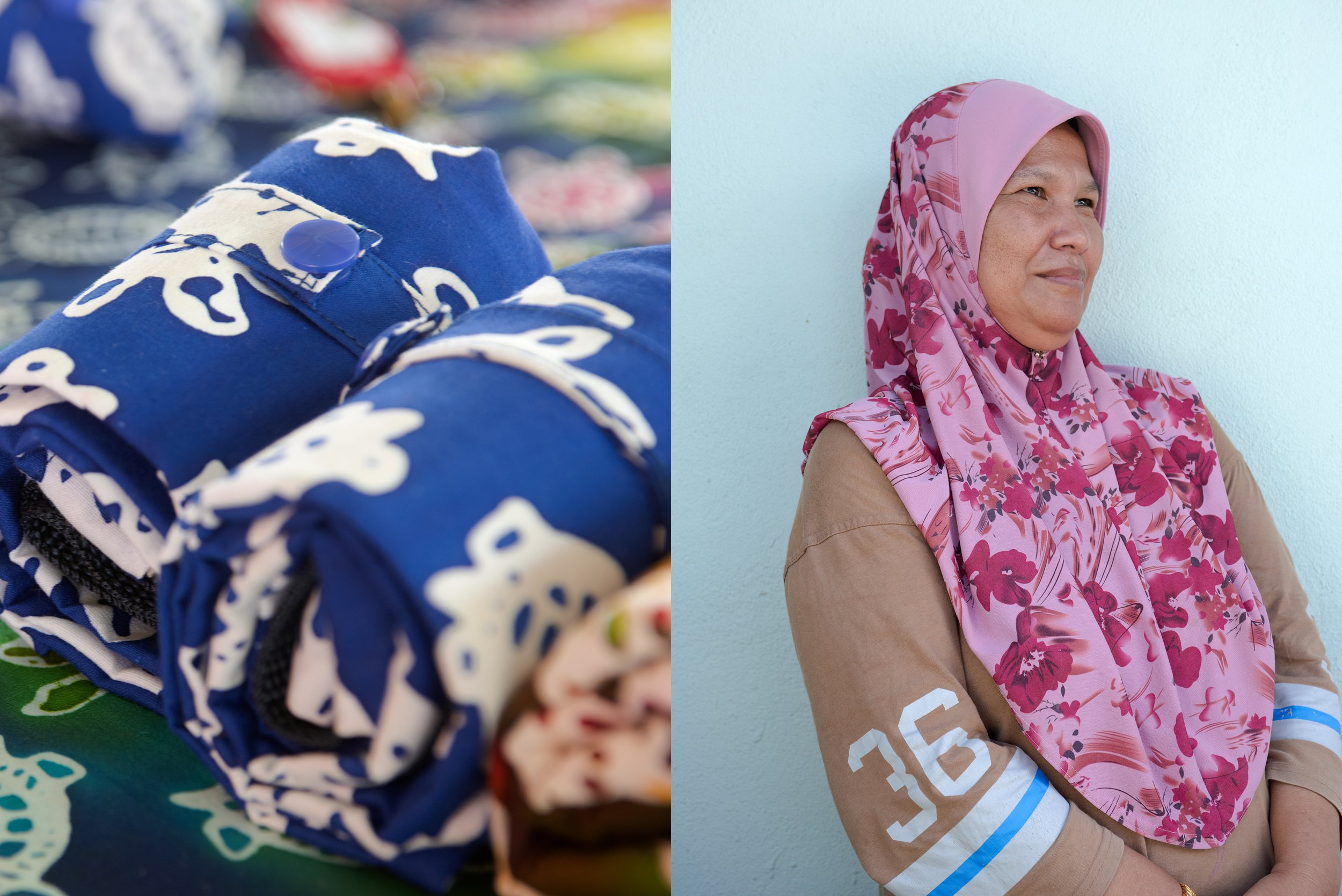
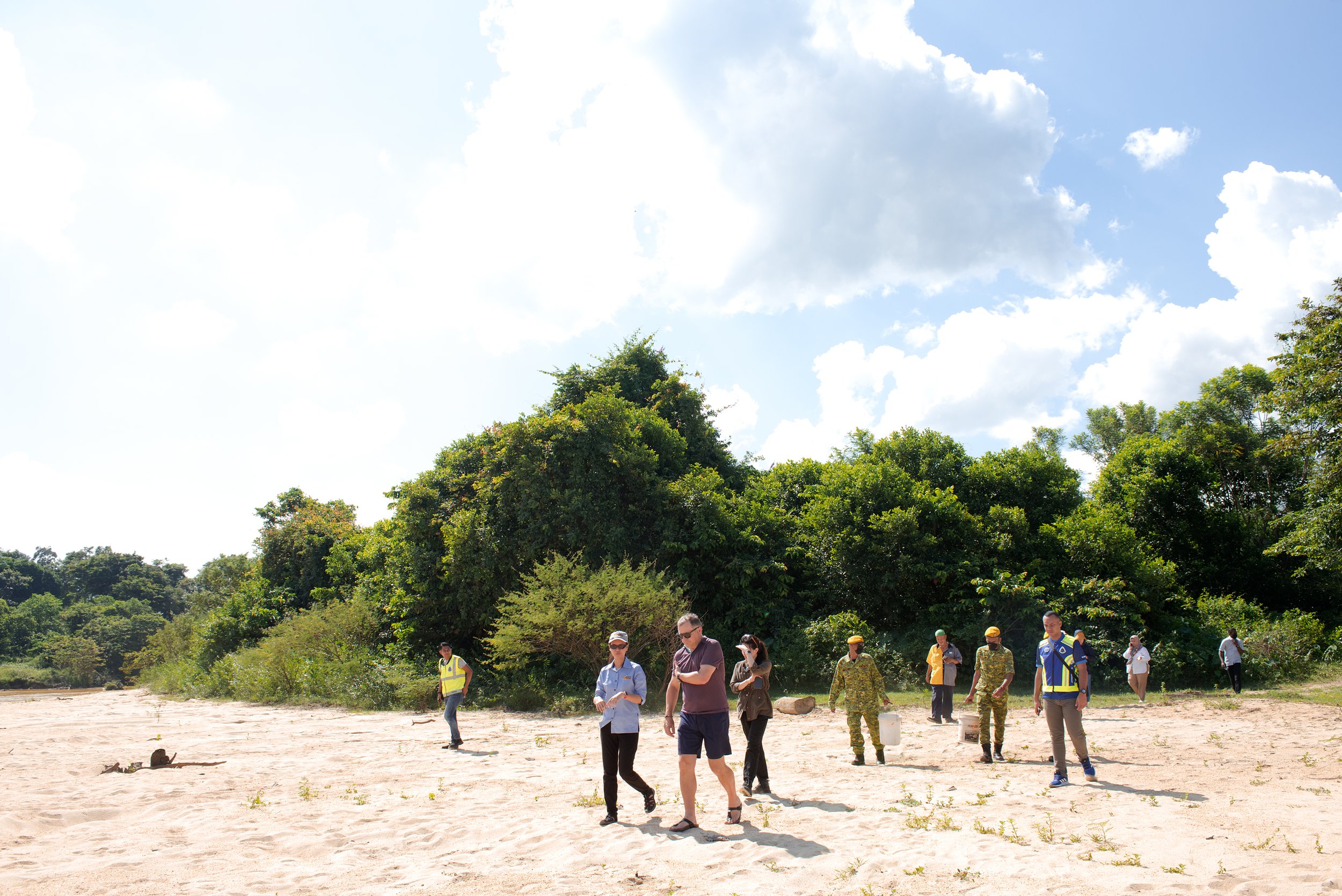
WORDS AND IMAGES BY PENGKUEI BEN HUANG
EDITED BY TAMARA BLAZQUEZ-HAIK
The Southern River Terrapin (Batagur affinis), a species of freshwater turtle in Malaysia, is facing extinction due to its low reproduction rates, existential threats from poachers, and habitat loss. However, not all hope is lost, because thanks to the Turtle Conservation Society of Malaysia’s community-based conservation efforts, these terrapins are slowly starting to make a comeback to the waters of the Kemaman River.
A young terrapin is being released into the Kemaman River.
Ranked twelfth by the National Biodiversity Index, Malaysia stands as one of the world’s most biodiverse countries, home to iconic animals like elephants, rhinos, tigers, orangutans, and approximately 400 different amphibian and reptile species. While Malaysia’s forest coverage is vast (around two-thirds of the country is covered in forests dating back 130 million years), due to rapidly increasing economic development, it also has one of the fastest deforestation-acceleration rates. This is fueled by various industrial activities, such as those carried out by the palm-oil industry, and contributes to the decline of many different species, including the endangered River Terrapins.
The Turtle Conservation Society of Malaysia (TCS) is based in Chukai, a picturesque, coastal town located in the southern part of the state of Terengganu. It is known as a hub for offshore oil, and famous for its diverse food-based tourism as well as its sea turtle conservation initiatives. Slowly but steadily, it has been changing the River Terrapins’ situation through its community-based conservation efforts.
Aminah Madi (left) and Hadifah Ruhaizi (right), both interning at TCS, are releasing a softshell terrapin to the river.
For many years, this species, native to the Kemaman River that runs through the town of Chukai, was not considered endangered. Much of the attention was solely focused on protecting the general sea turtle population, leaving terrapins out in the cold. However, through the passionate dedication of Dr. Pelf-Nyok Chen (Pelf), the founder and Executive Director of TCS, a conservation program was initiated to save the critically endangered River Terrapins in 2011.
Dr. Pelf-Nyok Chen, head of TCS, holding two young terrapins. The one on the right has a tooth underneath its nose to break the eggshell during hatching.
TCS was founded in 2011 through the support of the Department of Wildlife and National Parks (Perhilitan) in Malaysia. Its initial work as a research-based project has quickly evolved into a community-based conservation project, and it collaborates with several villages along the Kemaman River.
“Traditionally, local villagers sourced terrapin eggs for food. But unlike sea turtles, which can produce eggs multiple times a year, terrapins are only able to do so once a year,” said Pelf. “Whereas sea turtles can lay 100-plus eggs each time, terrapins are only able to lay about 25-35 eggs once a year.”
Pelf began to work with locals by convincing poachers to become guardians of the terrapins. They now use their skills to protect the eggs – rather than collecting them for food – by bringing them back to the hatchery for incubation in Kampung Pasir Gajah, a village 20 kilometres west of Chukai. Once hatched, terrapins are looked after by the designated guardians, along with other villagers, in the hatchery for about six months before they are released into the river. This community-based collaboration has helped release more than 4,000 terrapins over the past 11 years.
Hatching facility at TCS.
Beyond collaborating with villagers to protect the terrapins, Pelf also works with local schools running after-school activities that raise awareness about the importance of conservation and provide more in-depth education to students about turtles.
Children at Pasir Gajah Elementary school, answering questions after hearing a lecture on turtle conservation.
TCS has also extended their educational offerings to visitors and donors of the hatchery. Similar to the popular sea turtle tours nearby, TCS provides comprehensive paid tours of the facility, where visitors learn about the conservation efforts of TCS while also getting a chance to experience the release of terrapins themselves. It is one of the strategies the organization adopted to generate much-needed revenue while at the same time teaching the public about the importance of saving terrapins.
Pelf has encouraged the Chukai community to take control and protect their surrounding biodiversity to “enhance global support for efforts to combat poaching and trafficking of protected species by increasing the capacity of local communities to pursue sustainable livelihood opportunities.” Promoting the sustainable reproduction of terrapins has contributed to reducing biodiversity loss, and has also furthered the economic stability of the Chukai community.
Another initiative started by Pelf in the wake of the COVID-19 pandemic was to collaborate with local women to produce merchandise using batik, a traditional Malaysian/Indonesian technique of fabric dyeing, for sale online. This collaboration not only helped TCS to generate additional revenue to compensate for diminishing grants and donations during the pandemic, but it also helped women in the village earn extra income to support their livelihoods.
(Left) Noratiqah Binti Azemi, a local villager from Kampung Pasir Gajah, is one of those responsible for creating the hand-crafted merchandise sold by TCS. (Right) Items for sale at TCS using batik method of fabric dyeing.
From its humble beginnings as a research project, TCS has become a dynamic conservation project with participation and collaboration from multiple communities. Pelf and her small team have built a network of volunteers in the region who are actively involved in the cause. The educational outreach and the recent sale of merchandise not only furthers the message beyond the local level, but also benefits the economic well-being of nearby communities. Pelf’s decades of hard work to bridge conservation and community engagement brought to life TCS’s current success.
“While you could work on conservation all by yourself, there’s a limit on what you can achieve without the direct involvement of the community,” reflects Pelf.
Pelf’s tireless efforts and the accomplishments of TCS offer a shining example of how bringing a community together can create positive change for people, wildlife, and nature.
Visitors at Rimbun Dahan Turtle Hatchery are releasing infant sea turtles.



